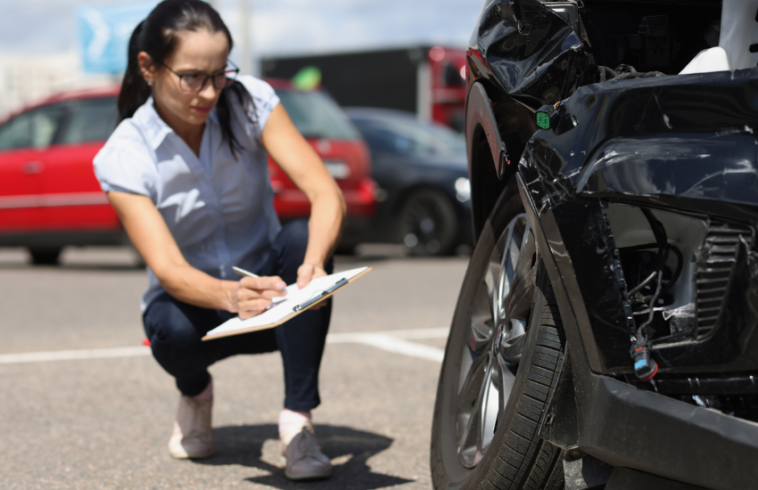Is it illegal to drive without insurance? Driving without insurance is a risky proposition. Find out & stay protected!
Hitting the open road offers freedom and adventure, but it also comes with a crucial responsibility: ensuring you have proper car insurance. While the thrill of cruising down the highway is undeniable, the potential consequences of driving uninsured can quickly turn your joyride into a nightmare. This guide delves into the legal landscape of car insurance, exploring the importance of coverage, state-specific regulations, and the risks associated with driving uninsured.
Understanding the Importance of Car Insurance
Car insurance is much more than just a legal requirement; it’s a safety net protecting you and others from the financial burdens of accidents. Imagine this: You’re enjoying a peaceful drive when suddenly, another driver crashes into you. Medical bills pile up, repairs are extensive, and your car might even be totaled. Without insurance, this scenario could leave you facing financial ruin, struggling to cover the costs of damage and injuries.
Beyond protecting your finances, car insurance also ensures legal compliance. In most states, driving without insurance is illegal, resulting in hefty fines, license suspensions, and even car impoundment. These consequences can significantly disrupt your daily life and leave you exposed to further financial hardship.
The Legal Landscape: Exploring State-Specific Regulations
While car insurance plays a vital role in responsible driving, legal requirements vary across states. Some states mandate minimum insurance coverage, while others allow drivers to demonstrate financial responsibility through alternative means. Understanding these differences is crucial to ensure you comply with the law and avoid costly penalties.
Mandatory Insurance vs. Financial Responsibility Laws:
- Mandatory Insurance: In most states, having car insurance is mandatory. This means you must carry a minimum level of coverage, typically including liability insurance, which protects others from injuries and property damage you cause in an accident.
- Financial Responsibility Laws: In states with financial responsibility laws, drivers have more flexibility. Instead of purchasing traditional insurance, they can post a bond, demonstrate sufficient assets to cover potential costs, or join a high-risk insurance pool.
Minimum Coverage Requirements:
Even in states with mandatory insurance, the specific requirements vary. Most states require at least third-party liability insurance, which covers injuries and property damage caused to others. However, some states might also require additional coverage, such as personal injury protection or uninsured motorist coverage.
Exceptions: Special Cases and Exemptions:
There are a few exceptions to the general rules. For example, drivers with antique or classic cars might be exempt from certain insurance requirements. Additionally, some states allow young drivers or those with poor driving records to participate in supervised driving programs instead of obtaining full insurance coverage.
Consequences of Driving Uninsured: Facing the Risks
While driving without insurance might seem like a way to save money in the short term, the potential risks are far too significant to ignore. Here’s a glimpse into the consequences you might face:
Financial Fallout:
- Accident Costs: In an accident, you’ll be solely responsible for covering all associated costs, including medical bills, car repairs, and property damage. These expenses can quickly spiral into debt, impacting your financial stability for years to come.
- Increased Insurance Rates: Once you do decide to purchase insurance, your rates will likely be significantly higher due to your prior lack of coverage. This can further strain your finances, creating a vicious cycle of increased costs.
Legal Repercussions:
- Fines: Driving uninsured often results in hefty fines, ranging from hundreds to thousands of dollars.
- License Suspensions: Your driver’s license might be suspended for a specific period, making it impossible to operate a vehicle legally.
- Jail Time: In rare cases, driving uninsured can even lead to jail time, especially after repeated offenses.
Denial of Claims:
Without insurance, you’re essentially on your own if you’re involved in an accident, even if it’s not your fault. The other driver’s insurance company will likely deny your claims, leaving you without any financial assistance for repairs or medical expenses.
Alternatives to Traditional Insurance: Exploring Options
For some individuals, obtaining traditional car insurance might seem impossible due to high costs or specific circumstances. Thankfully, a few alternative options can provide financial responsibility and ensure legal compliance:
Bonded Vehicles: Drivers can obtain a surety bond, a financial guarantee that covers potential accident costs. This option can be more affordable, but it might not be available in all states.
Self-Insurance: In some states, individuals with substantial assets can demonstrate their ability to cover potential accident costs independently. This requires meeting specific financial criteria and obtaining a self-insurance certificate.
High-Risk Insurance Pools: Drivers with poor driving records or other risk factors might find it difficult to obtain affordable insurance through traditional channels. High-risk insurance pools offer coverage for such individuals, but premiums are often significantly higher.
Making the Right Choice: Ensuring Legal Compliance and Protection
Having explored the legal landscape and potential risks of driving uninsured, it’s clear that car insurance is a crucial element of responsible driving. Now comes the question: how do you choose the right coverage for your needs?
Evaluating Your Needs:
The first step is to understand your individual needs and risk factors. Consider factors like:
- Your driving habits: Do you commute daily or drive primarily for leisure?
- The type of vehicle you drive: The value and specific features of your car can impact your coverage needs.
- State-specific minimum requirements: Ensure your chosen plan meets the minimum coverage requirements in your state.
- Additional coverage options: Consider adding comprehensive coverage for damage to your own vehicle and collision coverage for accidents where you’re at fault.
Shopping for Competitive Rates:
With your needs in mind, it’s time to compare quotes from different insurance providers. Don’t be afraid to shop around and compare coverage levels and premiums to find the best deal. You can use online comparison tools or contact individual companies directly for quotes.
Maintaining Continuous Coverage:
Once you’ve chosen a plan, remember to maintain continuous coverage. Lapses in coverage can lead to higher rates and even make it difficult to obtain coverage again in the future. Set up automatic payments and renewal reminders to avoid unexpected interruptions in your coverage.
Conclusion: Promoting Safety and Responsibility on the Road
Driving with proper car insurance is not simply a legal requirement; it’s a fundamental act of responsible citizenship. By ensuring you have appropriate coverage, you protect yourself and others from financial burdens, promote safety on the roads, and comply with the law. Choose the right coverage, drive safely, and enjoy the freedom of the open road with peace of mind.
FAQs: Answering Your Burning Questions
1. What happens if I get caught driving without insurance?
The consequences of driving uninsured can vary depending on your state’s laws. However, you can expect to face hefty fines, license suspension, car impoundment, and even jail time in some cases.
2. Do I need insurance to park my car on the street?
Even if you’re not driving, parking your car on public streets typically requires having valid car insurance.
3. Can I drive someone else’s car without insurance?
Whether you can drive someone else’s car without insurance depends on their insurance coverage. In some cases, their insurance might extend to you, but it’s crucial to check with them directly.
4. What are the minimum insurance requirements in my state?
Minimum insurance requirements vary by state. You can find specific information about your state’s requirements on the website of your state’s Department of Motor Vehicles.
5. What happens if I have an accident and I’m not insured?
If you’re involved in an accident and you’re not insured, you’ll be solely responsible for covering all associated costs. The other driver’s insurance company will likely deny your claims, leaving you in a difficult financial situation.
By understanding the importance of car insurance, the legal landscape, and the potential consequences of driving uninsured, you can make informed decisions to ensure your safety and financial protection on the road. Remember, driving with proper coverage is not just a legal obligation, but a responsible choice that benefits you and those around you.
We recommended you


